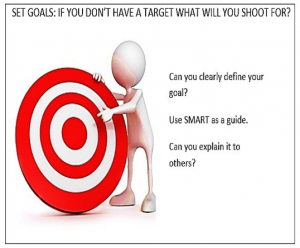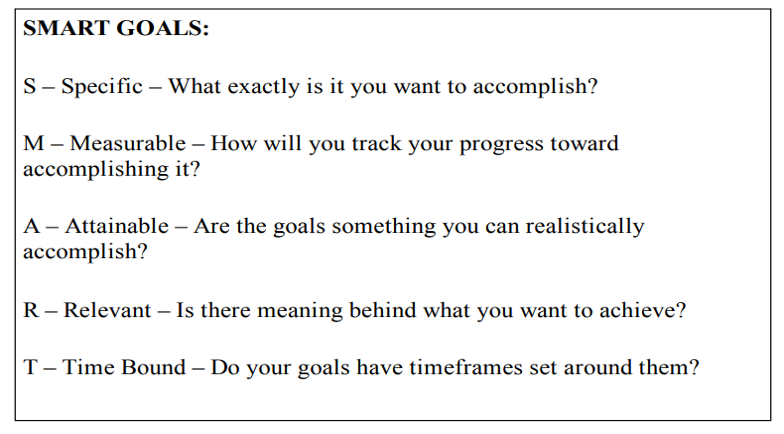To celebrate National Mentoring Month, we are featuring a series of guest posts reflecting on mentorship. This week features advice on setting SMART goals from George Vukotich, Organization Development Lead with the Argonne Leadership Institute.
It’s a new year, which means it is time for New Year’s resolutions. Just as it can be hard to follow through on New Year’s resolutions, it can be equally as hard to follow through on our mentoring commitments. This is where SMART Goals can help.
Often individuals realize they could benefit from having someone to bounce ideas off or ask for advice, but they are not sure where to start. Even if they have someone to talk to, they are not sure what to talk about.
could benefit from having someone to bounce ideas off or ask for advice, but they are not sure where to start. Even if they have someone to talk to, they are not sure what to talk about.
Have you ever been to a meeting or met with someone where it felt like you were just meeting for its own sake with no purpose? Having mentoring meetings just to meet rarely leads to productive outcomes. While it is nice to say that you have met with your mentor or mentee, the purpose of having mentoring meetings is to create productive insights on how to move your ___________ (project, career, education, etc.) forward. Without goals, time just gets burned up. While goals may change, there needs to be a starting point and a destination to strive for. By knowing what you want to achieve and having a set time to achieve it in, both the mentor and the mentee can concentrate their efforts to get where they want to be and avoid the many distractions that come up along the way.
Here’s what SMART Goals are about:
Basically, I suggest that the mentee start the process and then share what they have written down with their mentor to come to an agreement on whether the goals are realistic and how to make it happen. This may be a repetitive process, but it is better to get agreement up front than to spend time hoping that that something productive will happen.
This said, the mentoring relationship should not have too many goals. I recommend 1 to 3 over a six-month period as being manageable and realistic. It is also important to put measures in place and review the goals that have been set. A monthly check-in to evaluate progress can help, and if adjustments need to be made, changes can be made accordingly.
Getting off to a good start is the key in having a successful mentoring relationship. Start the new year off right by setting some SMART goals.
Want to know more about developing mentoring goals and a plan of action? Check out the tools developed for the Argonne Mentoring Program (login required).


